Airspeeder has held a flying car ‘drag race’ in the outback ahead of its Grand Prix season unveiling
Is it finally the future? An SA start-up has tested two flying cars in a 150 km/h “drag race” in the Outback as it prepares for a Grand Prix.
Business
Don't miss out on the headlines from Business. Followed categories will be added to My News.
Adelaide flying car start-up Airspeeder has pulled off a landmark quarter mile “drag race” in the South Australian outback as it gears up for full scale Grand Prix racing next year.
The company, which has attracted global sponsors such as Swiss watch firm IWC Schaffhausen and DHL, has released footage of two of its Mk3 EXA flying cars hitting speeds of up to 150km/h as they race through the sky in the Flinders Ranges.
Airspeeder was founded by Matt Pearson, who is also a co-founder of nano satellite company Fleet Space Technologies, and its staff include former employees of motorsport icons Ferrari, Brabham, Rolls Royce and McLaren.
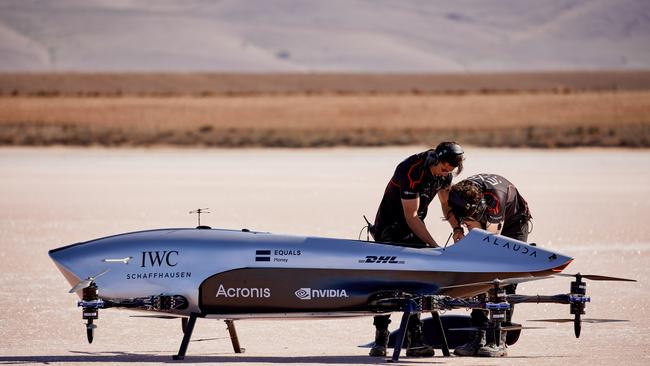
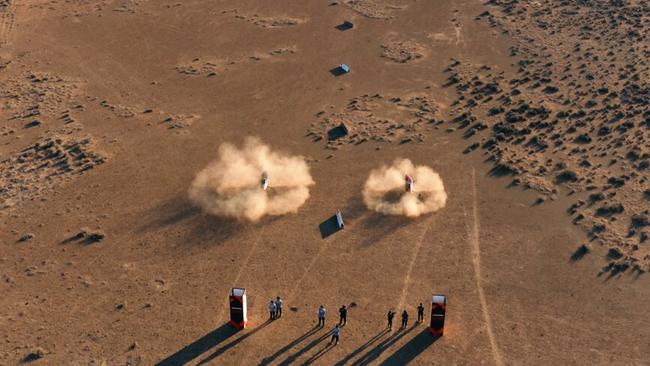
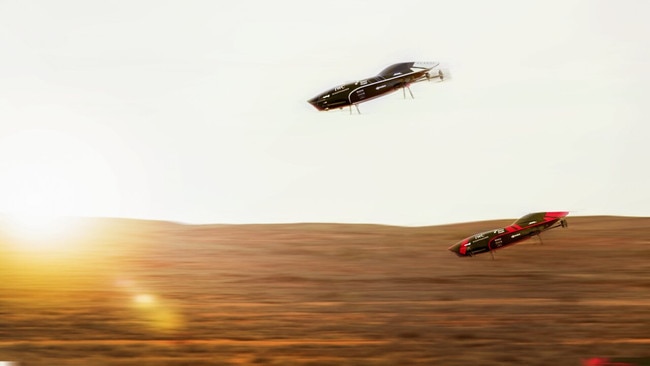
The drag race, over 400m from a standing start, pitted two teams from Alauda Aeronautics - a sister company to Airspeeder - against each other.
The Mk3 EXA vehicles, which are capable of speeds nearing 200km/h, and eventually, the company says, up to 300km/h, are piloted from the ground, and have a “virtual force field’’ around them created by technology designed to make sure they don’t hit each other.
READ MORE: The Airspeeder story
The recent race was a straight shot over 400m, at about 10m off the ground, with Team Bravo beating team Alpha by 3.2 seconds.
Mr Pearson said it was a key test ahead of the Grand Prix season, which will take place in “soon to be unveiled locations” next year.
“We are on the cusp of making motorsport and mobility history with the world’s first electric flying car races,’’ Mr Pearson said.
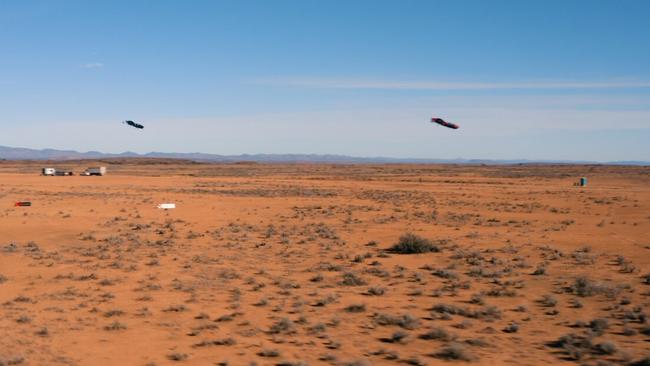
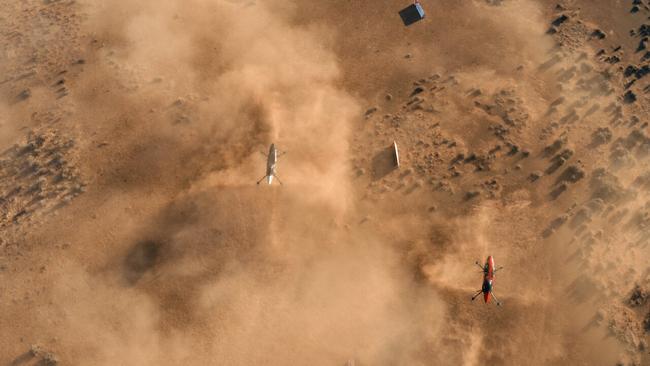
“This test race provides the world a glimpse at the next generation of motorsport and mobility.
“This first test drag-race is a major moment in the creation of our sport and a giant leap forward for the development of electric flying cars.”
The Grand Prix series is expected to be streamed around the world, with a potential audience of billions, and the viewer experience will be enhanced with virtual race tracks superimposed on the landscape.
Races can take place in a number of different environments including over ice, desert, and even forests, the company said.
“Because flying car racing does not require the same physical infrastructure as legacy motorsport, this presents a sport built from the ground-up with sensitivity to the global requirement to race with minimal ecological impact,’’ the company said.
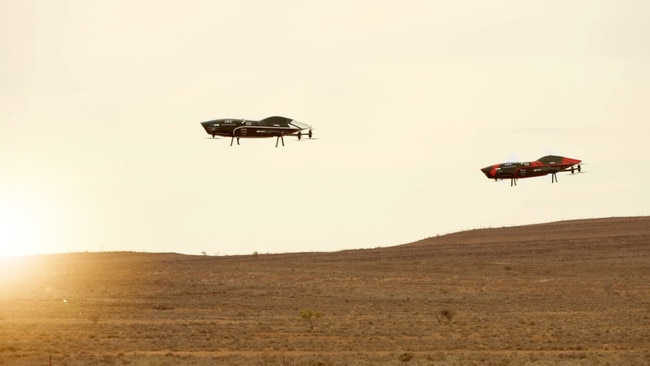
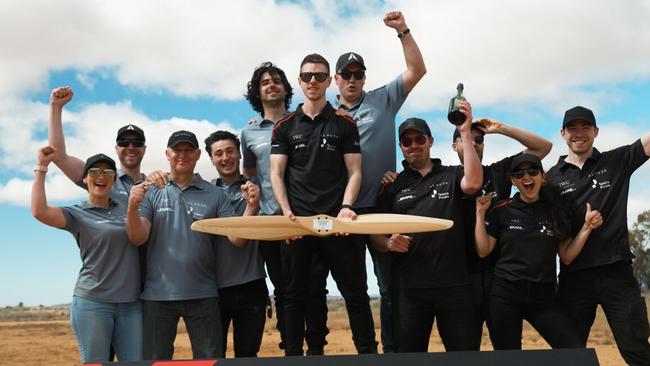
“As races play out in varying conditions including over ice, over sea, deserts and even forest locations, mastery of external factors add a compelling tactical layer to the sport.’’
Airspeeder’s ambition is that the vehicles will move from being remotely-piloted to crewed, with the current crop of pilots being drawn from eSports, and civil, military and acrobatic aviation.
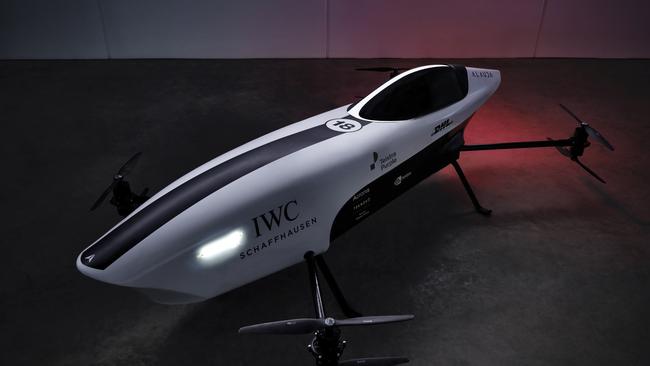
“Alauda Aeronautics has created the motor racing arm of this new form of transport and with it a place and a space for the industry to rapidly develop key safety, performance and digital technologies,’’ the company said.
“This will hasten the arrival of electric flying cars that promise to liberate urban environments from congestion through a clean-air form of advanced aviation mobility.’’
As well as brand and technology partners, Airspeeder has built a team including Judith Griggs, the former chief executive of Australian Grand Prix Corporation, who is leading rights management for the racing series in Australia.
Originally published as Airspeeder has held a flying car ‘drag race’ in the outback ahead of its Grand Prix season unveiling



